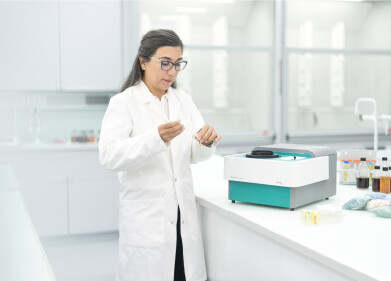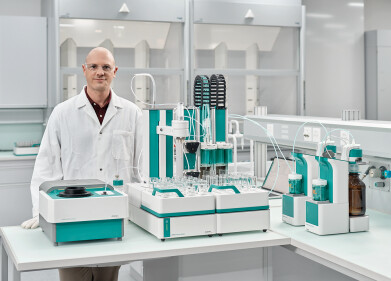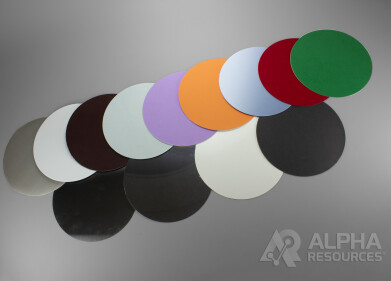Mass Spectrometry & Spectroscopy
New Method to Analyse Haloacetic Acids, Bromate and Dalapon is 50% Faster than Current USEPA Method
May 08 2017
Wu et. al. present a new method to analyse nine haloacetic acids (HAAs), bromate, and dalapon plus four potentially more toxic iodinated HAAs in natural waters by coupling ion chromatography with tandem mass spectrometry (IC-MS/MS). The new method is 50% faster than the current USEPA method 557 including more compounds and achieving sub-µg/L level detection limits for all 15 target analytes.
HAAs are one of the most commonly detected disinfection by-products in US water utilities. Some of them are regulated by the USEPA and have been classified as potentially carcinogenic. HAAs have traditionally been analysed by GC methods, which require derivatisation and sample extraction, which are laborious, time-consuming, and can have a negative effect on reproducibility.
The method presented in the paper by Wu et. al. overcomes these disadvantage by coupling ion chromatography with tandem mass spectrometry. The method was applied to investigate concentrations of 13 HAAs, bromate, and dalapon in untreated, chlorinated and chloraminated groundwater and surface water samples. The method provides an easy approach to assess the health risk of HAAs, especially the highly toxic iodinated HAAs.
Digital Edition
Lab Asia 31.6 Dec 2024
December 2024
Chromatography Articles - Sustainable chromatography: Embracing software for greener methods Mass Spectrometry & Spectroscopy Articles - Solving industry challenges for phosphorus containi...
View all digital editions
Events
Jan 22 2025 Tokyo, Japan
Jan 22 2025 Birmingham, UK
Jan 25 2025 San Diego, CA, USA
Jan 27 2025 Dubai, UAE
Jan 29 2025 Tokyo, Japan



















